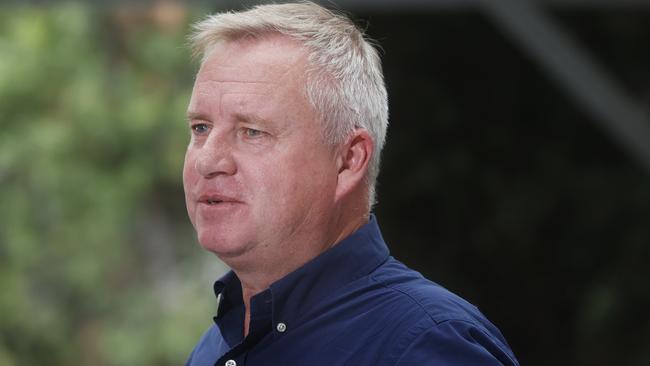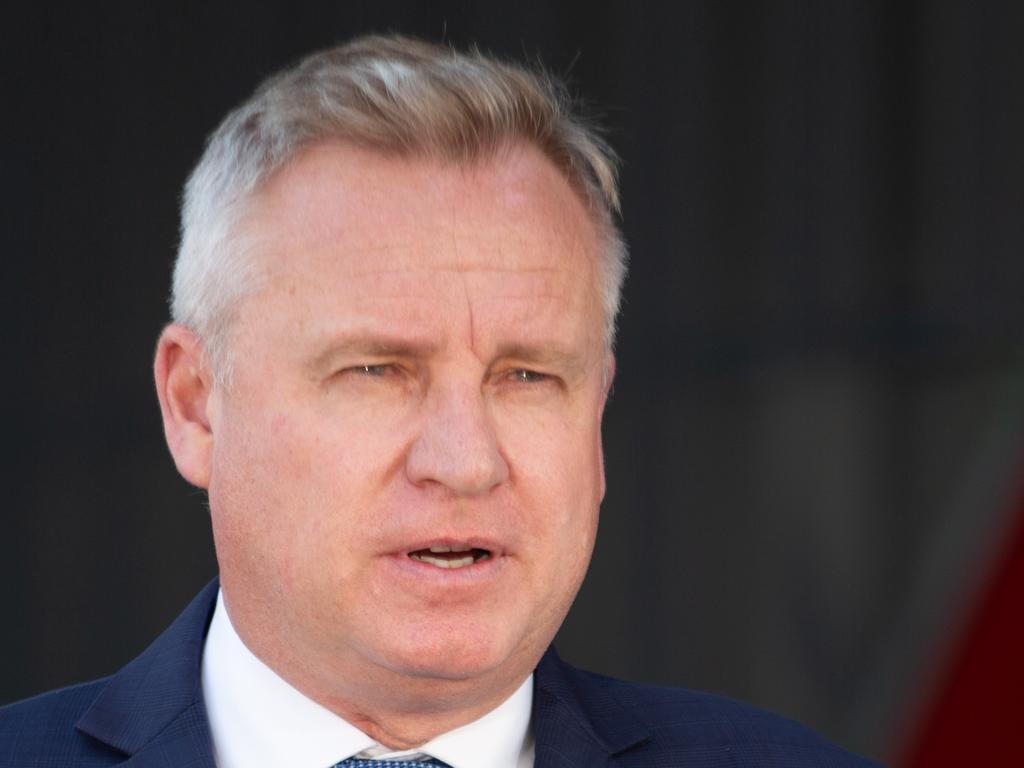Tasmania Premier Jeremy Rockliff calls early election
Jeremy Rockliff says he will ask the state’s Governor to call a general election, expected to take place in March.

A Tasmanian election will be called on Wednesday, with Premier Jeremy Rockliff claiming it is “only way to restore stability”, after two independents refused the terms of a new power deal.
The nation’s last Liberal government, seeking an unprecedented fourth consecutive term, on Tuesday resolved to face voters rather than a parliament in which it must reply on two turncoat ex-party members.
Mr Rockliff will visit Governor Barbara Baker on Wednesday to seek an early election, more than a year before it is due in May 2025.
It is unclear whether she will accede to the request or require the Premier to test his support on the floor of the House of Assembly, due to sit on March 5.
Premier Jeremy Rockliff, who had failed to secure a new confidence deal sought with ex-Liberals Lara Alexander and John Tucker, held talks with cabinet and party room colleagues throughout Tuesday.
He then issued a statement late on Tuesday blaming the two ex-Liberals for the imminent poll.
“It was unanimously agreed that in the light of this (failure to agree a new deal), it was appropriate for me to request the Governor to call a general election,” Mr Rockliff said.
“The only way to restore the stability and certainty Tasmanians need is to re-elect a majority Liberal government.”
Multiple sources in Liberal circles tipped a March 23 poll.
Ms Alexander and Mr Tucker, both former Liberals, quit the party for the crossbench in May but signed an agreement providing confidence and supply.
They have accused the government of manufacturing a crisis as an excuse to go to the polls early.
While they have refused Mr Rockliff’s demand they vote only for government-backed motions and amendments, both last week recommitted to providing confidence and supply.
Ms Alexander on Tuesday attacked her former party, which has held office since 2014, suggesting it had a problem with women.
“I didn’t leave the Liberal Party because I found the crossbench more attractive, I left because the Liberal Party was an abusive partner,” she said.
“Now, just like that abusive partner, the Liberal Party still believes that if it insists enough, and gets enough of its mates to join in, I’ll give in and meekly sit in the corner like the submissive female, waiting for permission to speak.”
The government currently has 11 seats in the 25-seat Assembly, Labor 8, the Greens 2, and there are four crossbenchers, including the two ex-Liberals.
Under changes at the coming election, the Assembly will be restored to 35 members, reducing the quota required for election under the state’s proportional representation system.
This means minor parties and independents are more likely to be elected, likely making it difficult for either major party to form majority government.
The latest polling, by EMRS in November, had Liberals on 39pc, Labor 29, the Greens 12 and “others” 19.
Labor opposition leader Rebecca White, buoyed by the state ALP’s emergence from national administration, flagged a campaign fought on cost of living, education and health.
“After two weeks of dithering since trying to be the tough guy to John Tucker and Lara Alexander, the Premier has never looked weaker,” Ms White said.
“After 10 years of the Liberals, Tasmanians want urgent action on the cost of living. They want to pay Tasmanian prices for Tasmanian power, and they want a plan to set Tasmania up for the future.”








To join the conversation, please log in. Don't have an account? Register
Join the conversation, you are commenting as Logout